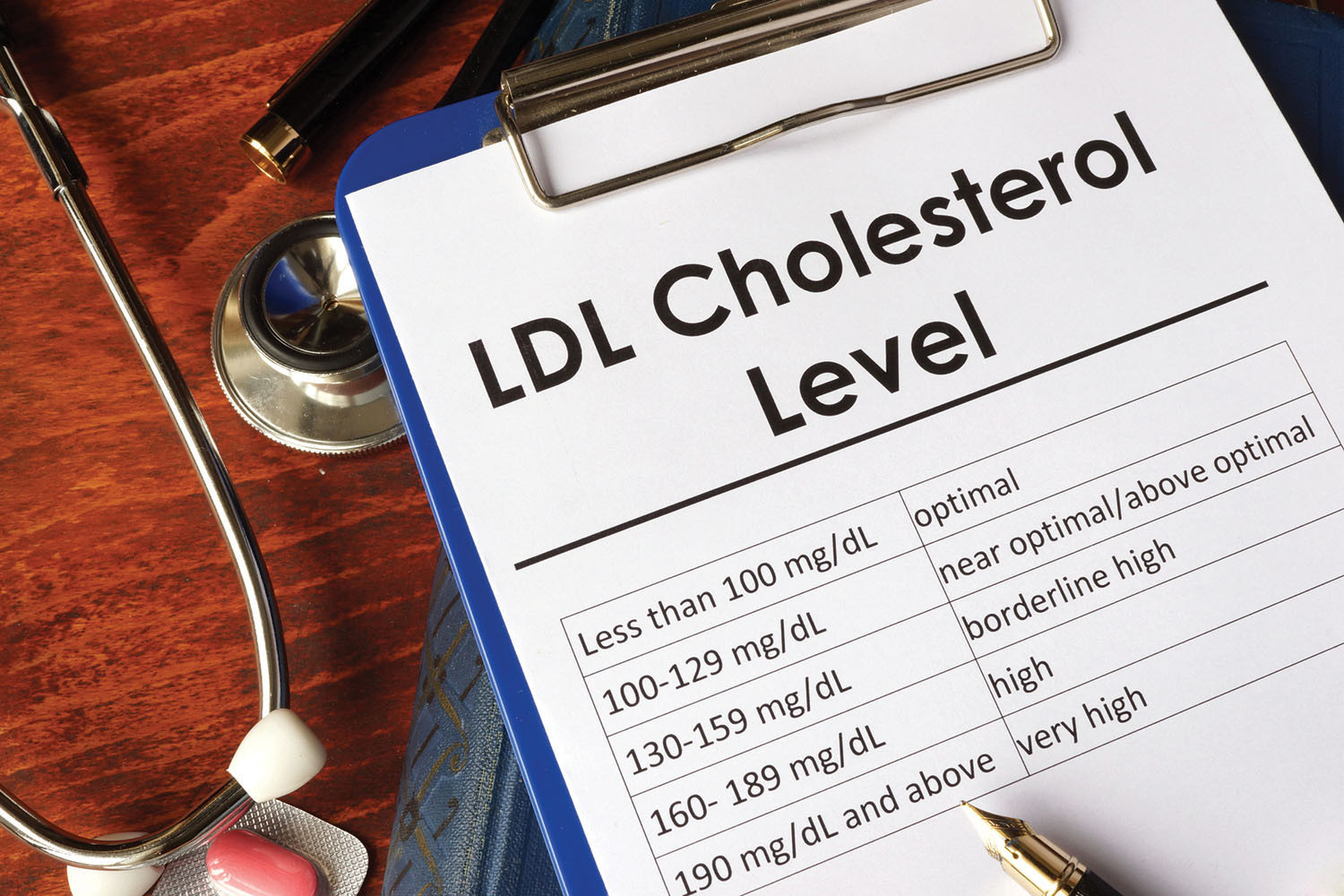
What can magnesium do for you and how much do you need?

Dry socket: Preventing and treating a painful condition that can occur after tooth extraction

What happens during sleep �� and how to improve it

How is metastatic prostate cancer detected and treated in men over 70?

Could biofeedback help your migraines?

Plantar warts: Options for treating this common foot condition

Cancer survivorship: What comes next after treatment

Nutritional yeast: Does this savory, vegan seasoning pack a nutritional punch?

Salmonella is sneaky: Watch out

Two jobs may lower the odds of dying from Alzheimer's disease �� but why?
Cholesterol Archive
Articles
What's the deal with dairy and heart health?
Full-fat dairy products such as yogurt and cheese can be part of a heart-healthy diet. Compared with nonfat or low-fat products, full-fat dairy products tend to be tastier and more filling. But because they contain more calories and saturated fat, it's best to limit full-fat dairy products to one serving a day and combine them with healthy foods, such as fruit, whole grains, and salads. Cheese is often eaten with less-healthy foods such as refined grains and meat, including pizza, burgers, mac and cheese, and Mexican food.
Heart attack versus cardiac arrest
Heart attacks occur when a blocked coronary artery prevents blood flow to part of the heart. Cardiac arrest is caused by an electrical misfire that causes the heart to abruptly stop beating.
The changing landscape of LDL lowering drugs
For most people, statins are still the best way to lower harmful LDL cholesterol. But two newer drugs may be promising additions or alternatives for those with stubbornly high LDL levels. Bempedoic acid, which lowers LDL by about 25%, works in a manner similar to statins but may help reduce muscle-related side effects seen with statins. Inclisiran interferes with a protein that's involved with regulating LDL production in the liver; it lowers LDL by about 50%.
Staving off heart problems in your 80s and beyond
For people in their 80s and beyond, the advice for preventing and treating heart disease is similar to that for young people, especially with respect to staying physically active. But octogenarians may need to adjust their medication regimens. Low-dose aspirin is not recommended after age 70, and doses of anti-clotting medications may need to be reduced. Some people may also need to dial back their blood pressure medications if they experience side effects such as dizziness.
Saturated fat eaten in the short term might not threaten heart health
People who follow a low-carbohydrate/high-fat diet for weight loss often eat high amounts of saturated fat. Even though saturated fat can contribute to cardiovascular disease, a 2021 study suggests that eating higher amounts might not be bad for heart health in the short term.
A healthier butter for your heart?
Naturally occurring plant compounds called stanols can help reduce cholesterol. But they may not be found in large enough amounts in butter substitutes to reduce cholesterol levels in the body. The best way to lower is cholesterol is still by eating a plant-based diet with more fruits and vegetables and less processed foods, reducing consumption of saturated fat, and working to maintain a healthy weight.
The facts on fat and heart health
Dietary fat can both help and hurt heart health, depending on the source. Eating adequate amounts of the "good" fats—monounsaturated and polyunsaturated—can help reduce cholesterol levels and lower blood pressure. "Bad" saturated fat found in many processed foods can have the opposite effect. Following heart-healthy diets like the Mediterranean and DASH diets and making small substitutions in daily eating habits can ensure people get the proper amounts of good fats.
Getting through grief
The American Psychiatric Association has recently added prolonged grief disorder to its official list of classified mental disorders. Someone may develop this disorder when someone close has died within the past 12 months. The person may experience intense longing for the deceased or preoccupation with thoughts about him or her. These feelings occur most of the day and nearly every day for at least a month. Recognizing the signs and seeking out help with talk therapy are the best approaches to help prevent it from evolving to depression.
Exercise may heal the heart as well as prevent future problems
Exercise may help to reverse some types of heart damage. Not only can workouts prevent heart problems, but it may help to improve conditions that may raise risk for cardiovascular events. A 2021 study, for example, showed that a yearlong exercise program helped improve heart health in people who were at increased risk for heart failure.

What can magnesium do for you and how much do you need?

Dry socket: Preventing and treating a painful condition that can occur after tooth extraction

What happens during sleep �� and how to improve it

How is metastatic prostate cancer detected and treated in men over 70?

Could biofeedback help your migraines?

Plantar warts: Options for treating this common foot condition

Cancer survivorship: What comes next after treatment

Nutritional yeast: Does this savory, vegan seasoning pack a nutritional punch?

Salmonella is sneaky: Watch out

Two jobs may lower the odds of dying from Alzheimer's disease �� but why?
Free Healthbeat Signup
Get the latest in health news delivered to your inbox!
Sign Up











